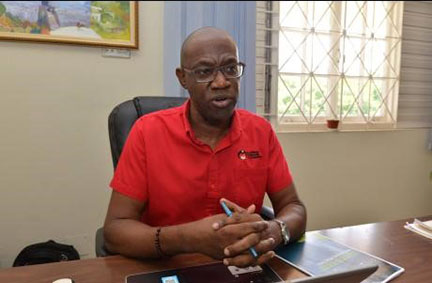(Jamaica Gleaner) Jamaica has recorded the most incidents of human rights violation when compared to its Caribbean neighbours.
According to the regional civil society-led human rights reporting mechanism, the Shared Incident Database (SID), of the 1,413 reports received for the period August 2013 to 2018, Jamaica had a total of 505 incidents, most of which were violence against males.
Guyana had the second highest recorded incidents, at 404, followed by Suriname, with 315.
The SID data showed that in Jamaica, 52.1 per cent of the incidents were reported by males. They accounted for approximately one and a half times the proportion of cases, compared to females at 33.5 per cent.
Transwomen also reported nine times the number of cases as transmen. There was one case where the person did not disclose their gender.
“The idea behind the shared incident database came about to develop some sort of mechanism through which you could have the systematic documentation of rights violation by people who were living with HIV and other key affected populations,” said Ivan Cruickshank, executive director at The Caribbean Vulnerable Communities Coalition (CVC), whose organisation spearheaded and piloted SID.
“After looking at how members of the key population groups in particular were responding to issues around rights violations, we realised that there was no systematic documentation of the incidents that were occurring.
He added, “You would hear stories but they were usually anecdotal stories. We couldn’t find anywhere that you could go to look and identify what was happening, where it was happening, who it was happening to and the magnitude of the problem.”
Details kept private
The database was established in 2016 and rolled out initially in Jamaica before launching in the wider Caribbean in 2017.
“Anybody who is affected by human rights can report into the database. We work with organisations who are working in the area of human rights, as well as issues around HIV. Those organisations can then make the system accessible to persons who they have to engage with on a day-to-day basis,” said Cruickshank.
Of note is that the details of who is reporting the incident is kept confidential.
Age was captured for 70.1 per cent of the total clients reporting to SID. The largest burden of incidents occurred in the 25-29 age group.
Reports came in from all 14 parishes of Jamaica, with Kingston recording the highest incidents (42.8 per cent), followed by St. Catherine and St. Ann. Hanover, Portland and Westmoreland recorded the least incidents. For 50 of the reports, there were no parish data recorded.
“People would report to civil society organisations that are members of the database, so once those reports are compiled then that information can be made available at the most aggregate level for people who are interested in understanding the issues that the communities face,” said Cruickshank.
“The general public doesn’t have access to the core of the database. What they have access to is the more aggregate information, like incidents that occurred, where it’s happening and which gender.”
Widespread reports
The largest proportion of incidents reported were two types of violations, which included violence followed by harassment and verbal abuse and physical violence.
“Some of the complaints that we have seen are violent attacks. We have seen reports of gender-based violence from women, reports from members of the LGBT (lesbian, gay, bisexual, and transgender) population, and reports from sex workers, so the issue around violence is one which is very common and cuts across all sectors,” stated Cruickshank.
“We also have reports of people reporting problems with access to services, so people might have gone to health facilities and have gotten poor treatment and service and so they report that their rights were violated in accessing those services.”
…More females reporting breach of confidentiality
Key incident comparisons by gender in the Shared Incident Database (SID) show that persons reporting breaches of confidentiality were more than double in females – 67.9 per cent, compared to males at 28.6 per cent.
For harassment and verbal abuse incidents, however, reports from males almost doubled the number of cases – 57 per cent, compared to females at 30.6 per cent, while transwomen accounted for 12.4 per cent of the cases.
“When individuals report into the system, we would ask the question ‘what do you want us to do with this information?’ Some people may say we just want to report it, some may just want a letter sent to the organization, and some people may want the matter to go to litigation if it can, and then we would assist them in routing it to the appropriate channel for redress,” said Cruickshank.
“Persons have been helped through the system, the community paralegal and we have some who have been helped through the pro bono lawyers.”
Anyone wanting to report an incident to SID can do so through a member-organisation.
“The information will be shared with the police only to the extent where we need to be able to engage them. So, for example, if the organisation that gets the report is asked by the client to go and engage with the police, then they will go and engage with the police, but we haven’t yet gotten to the place where we are actually sharing this type of information broadly with the different organisations. I think that is the next stage where we would want to take it,” noted Cruickshank.

